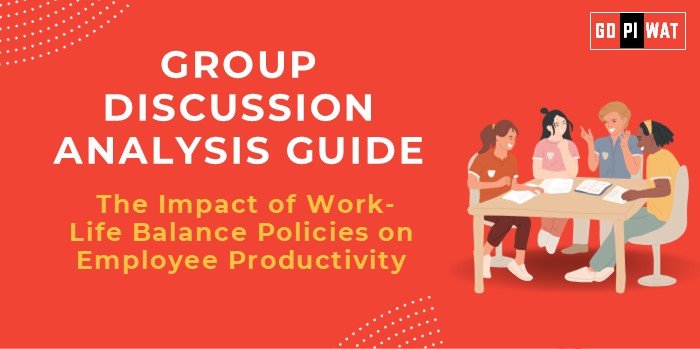🌟 The Impact of Work-Life Balance Policies on Employee Productivity
🌐 Introduction to the Topic
“Work-life balance is a key focus area for modern organizations striving to enhance employee well-being and productivity. As hybrid work models gain prominence post-pandemic, the role of effective work-life policies has become critical for sustainable corporate growth.”
Work-life balance policies aim to create harmony between employees’ professional and personal lives. With the rise of burnout rates, companies globally are reassessing how flexible working hours, remote work, and wellness programs contribute to productivity. Reports suggest organizations prioritizing work-life balance enjoy higher retention, engagement, and output.
📊 Quick Facts and Key Statistics
- 📈 70% of Employees: Report improved productivity when they have flexible work options (Gartner, 2023).
- 💰 Burnout Costs: $190 billion annually in healthcare expenses in the U.S. alone (Harvard Business Review).
- 🔄 Retention Impact: Companies with effective work-life policies report a 40% lower attrition rate (Gallup, 2023).
- 🌍 Global Trend: 50% of companies in Europe now offer a 4-day work week to enhance work-life balance.
- 🇮🇳 India’s Scenario: 61% of Indian employees report burnout due to a lack of flexibility (Microsoft Work Index, 2023).
🏢 Stakeholders and Their Roles
- 👨💻 Employees: Primary beneficiaries seeking improved mental and physical health, leading to better performance.
- 👩💼 Employers: Aim to improve retention, productivity, and organizational reputation.
- 🏛️ Government Bodies: Implement regulations supporting labor welfare and flexible work structures.
- 📊 Industry Experts: Advocate for innovative work models based on emerging workforce trends.
🌟 Achievements and Challenges
✔️ Achievements
- 📈 Increased Productivity: A 2023 study by Stanford showed a 13% rise in productivity with remote work.
- 🔄 Improved Retention: Companies like Google and Microsoft report higher retention through wellness policies.
- 🚫 Reduced Absenteeism: Work-life policies lead to a 41% reduction in absenteeism (Deloitte, 2023).
- 🌍 Global Models: Sweden’s 6-hour workday improved both productivity and work satisfaction.
⚠️ Challenges
- ⚡ Blurred Boundaries: Overlap between work and personal life in remote work can cause stress.
- 📏 Management Resistance: Traditional leaders perceive flexibility as reduced control over employees.
- 💻 Digital Burnout: Overreliance on virtual tools creates prolonged work hours and fatigue.
🌍 Global Comparisons
- 🇯🇵 Japan: Companies encourage employees to leave offices early through “Premium Fridays.”
- 🇳🇱 Netherlands: Leads globally with high employee satisfaction due to a 4-day work week structure.
📚 Case Study
Tata Steel: Implemented a 5-day week, resulting in improved employee satisfaction and productivity.
💬 Structured Arguments for Discussion
- ✔️ Supporting Stance: “Flexible work policies increase productivity by fostering employee satisfaction and reducing burnout, as seen in global companies adopting 4-day work weeks.”
- ❌ Opposing Stance: “Excessive flexibility can blur boundaries between work and personal life, reducing focus and productivity.”
- 🤝 Balanced Perspective: “While work-life balance enhances productivity, its success requires well-defined policies and effective implementation to avoid misuse.”
🎯 Effective Discussion Approaches
📈 Opening Approaches
- 📊 Statistical Insight: “A Gartner report found that companies with work-life policies saw a 21% rise in productivity.”
- 📖 Case-Based: “Sweden’s experiment with 6-hour workdays offers a proven model for enhancing efficiency and well-being.”
🔄 Counter-Argument Handling
- ⚠️ Argument: “Flexibility can be misused.”
- ✔️ Response: “Robust performance evaluation systems can address this challenge.”
📊 Strategic Analysis of Strengths and Weaknesses
- 💪 Strengths: Improved employee satisfaction, reduced burnout, enhanced productivity.
- 📏 Weaknesses: Management challenges, blurred boundaries, digital fatigue.
- 🚀 Opportunities: Adoption of hybrid work models and flexible schedules.
- ⚔️ Threats: Resistance from traditional corporate cultures and technological overload.
📈 Connecting with B-School Applications
📚 Real-World Applications
- 📋 Projects on HR strategies, productivity analysis, and organizational behavior.
- 📖 Case studies on global work-life balance policies for innovation and retention.
💬 Sample Interview Questions
- 🤔 “How do work-life balance policies impact organizational growth?”
- 📊 “What challenges can companies face while implementing flexible work policies?”
💡 Insights for B-School Students
- 🌟 Understand how employee-centric policies align with long-term organizational success.
- 📖 Explore how progressive workplaces retain diverse and innovative talent.


